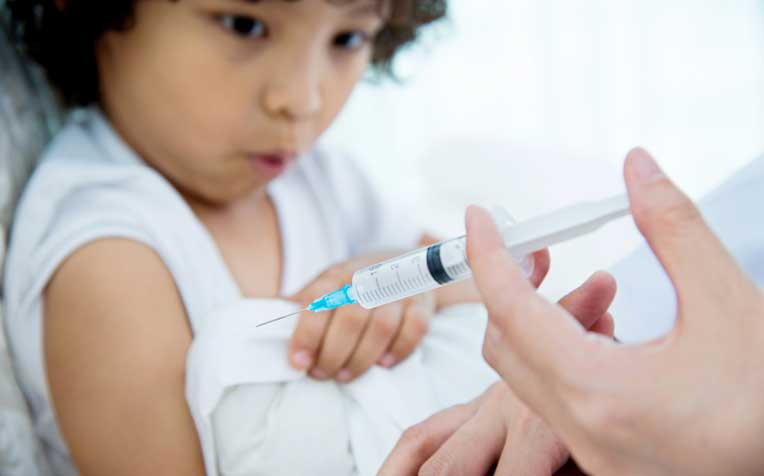
Pneumococcal disease (PD) can affect young children below one years old, due to their immature immune system.
Pneumococcal disease is vaccine-preventable
Vaccination is an effective preventive measure against pneumococcus bacteria infection. The pneumococcal conjugate vaccine (PCV) has been included in the National Childhood Immunisation Programme (NCIP) from September 2009. It covers the more common pneumococcal bacteria strains.
Children who are vaccinated, have a significantly lower risk of contracting a pneumococcus bacteria infection and developing serious complications from it.
Children above 2 years of age, who may have missed the vaccination before it was included in the NCIP, need only a single dose to be immunised against the infection. Parents should not delay administering the PCV to their child because the immature immunity in infants below a year of age makes them particularly susceptible to pneumococcal disease. The risk of complications and hospitalisation is significantly higher.
Dr Thoon Koh Cheng, Head and Senior Consultant at the Infectious Disease Service, KK Women’s and Children’s Hospital (KKH), a member of the SingHealth group, is a specialist in pneumococcal epidemiology research. He said, “At KKH, the average age of children with pneumococcal disease is noted to be about 3 years 10 months over the past decade, ie. 2003 – 2013. Parents should not assume that their child’s immune system will protect them after the age of 2 years and be tempted to forgo the vaccination. So having the child vaccinated is important to keep the disease at bay.”
Recommended schedule for your child's vaccination
PCV has been included in the National Childhood Immunisation Programme (NCIP) since September 2009 and requires 3 doses to be given when the child is about 2 to 4 months old, 4 to 6 months old and 12-15 months old.
Dr Thoon also emphasised the benefits of vaccinating on schedule, as opposed to waiting till the child is older, or skipping vaccination jabs. As explained above, the risk of disease is very high among infants younger than one year, and remains high till 5 years of age.
For children who have received the older 7-strain pneumococcal vaccine (PCV7), a supplemental dose of the 13-strain pneumococcal vaccine (PCV13) is recommended. This later version of the vaccine covers additional strains of bacteria, namely “1, 3, 5, 6A, 7F and 19A”.
The vaccine helps the body to build immunity against these strains of bacteria, which are becoming increasingly resistant to common penicillin antibiotic treatment. Of particular mention is strain 19A, which has become a common pneumococcal serotype and is often resistant to antibiotics.
So the next time you move your child away from someone’s coughing or sneezing, remember that vaccination is an effective prevention against pneumococcal disease!
Ref: S13
Contributed by















 Get it on Google Play
Get it on Google Play